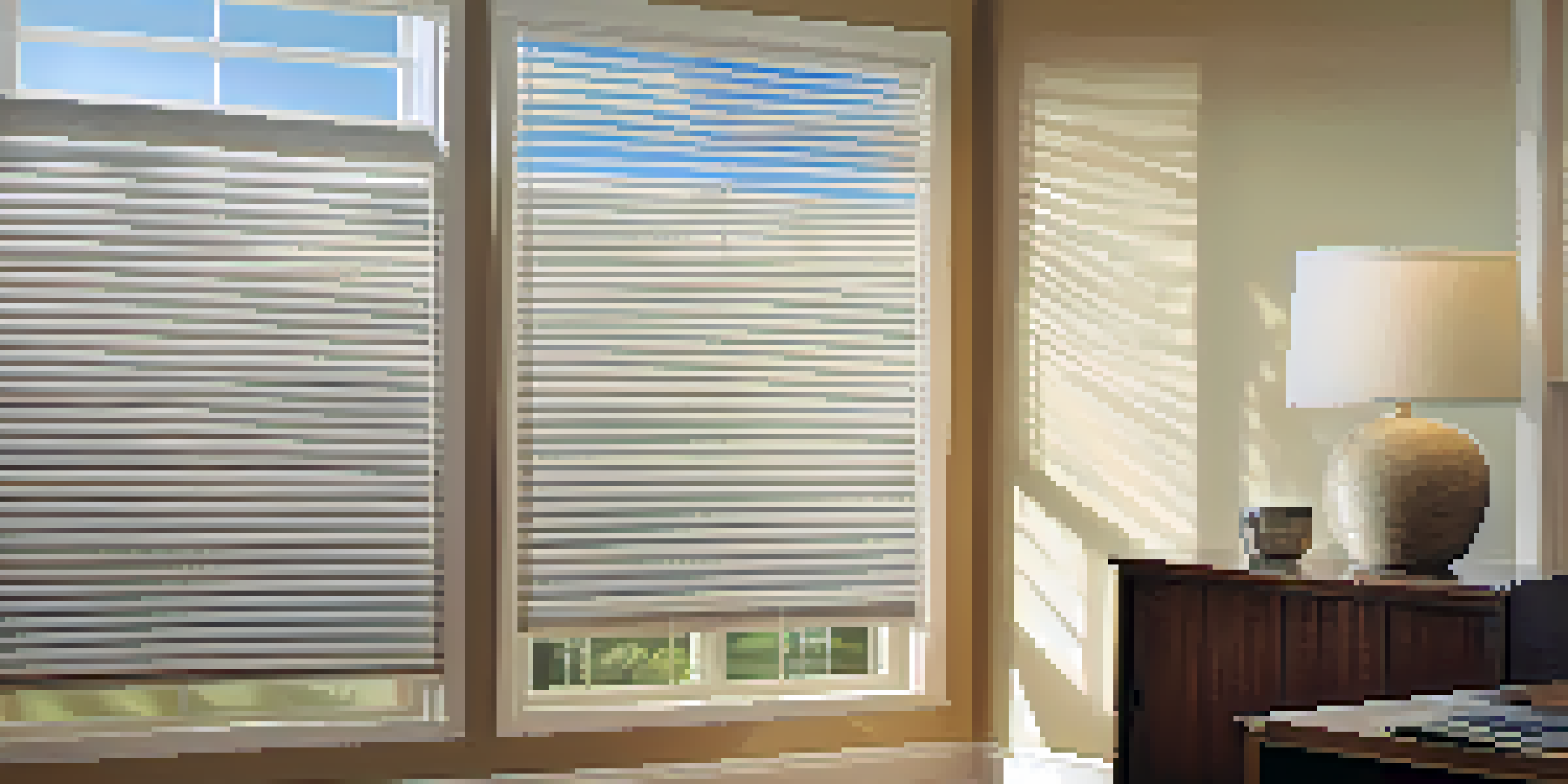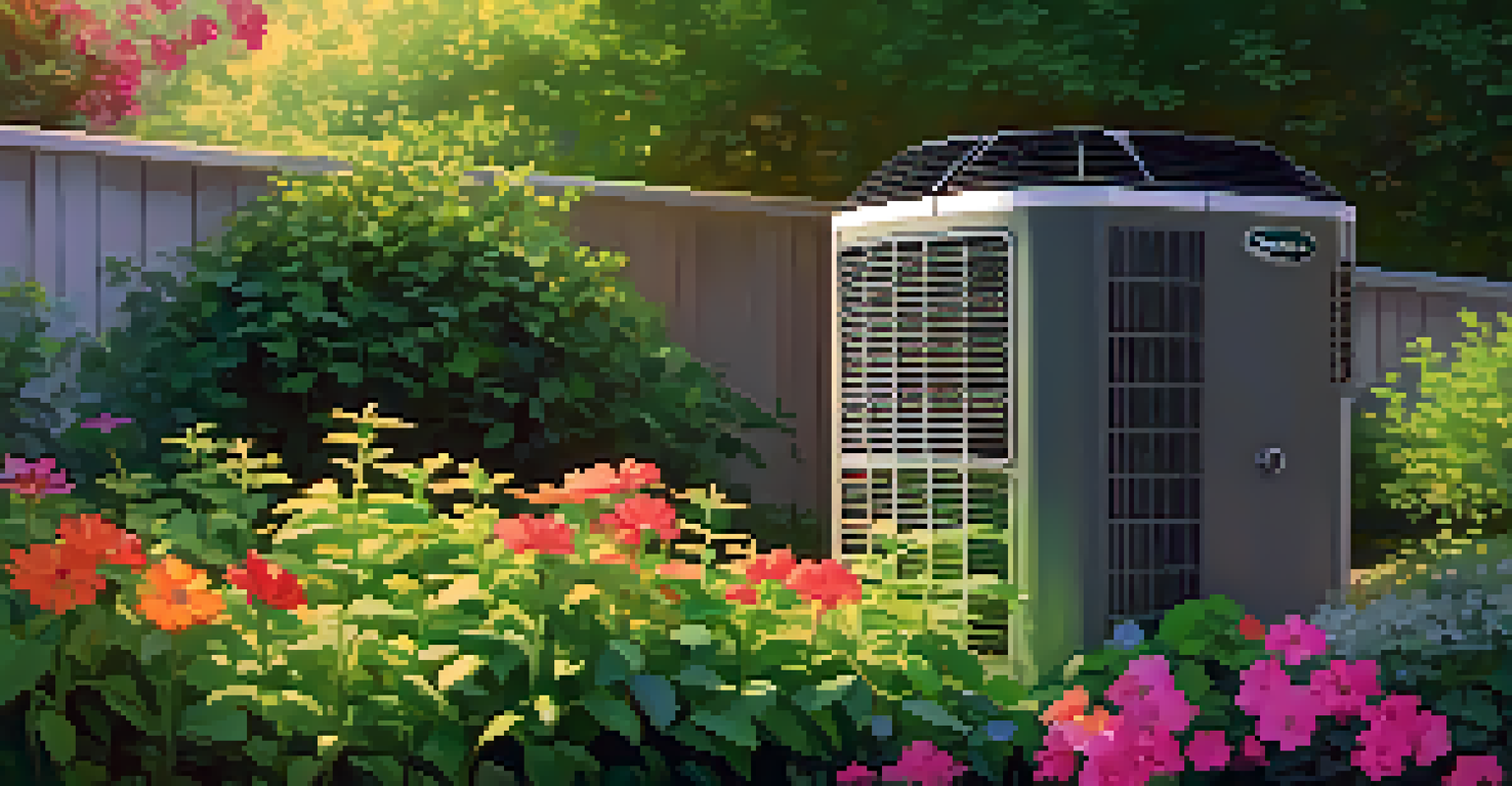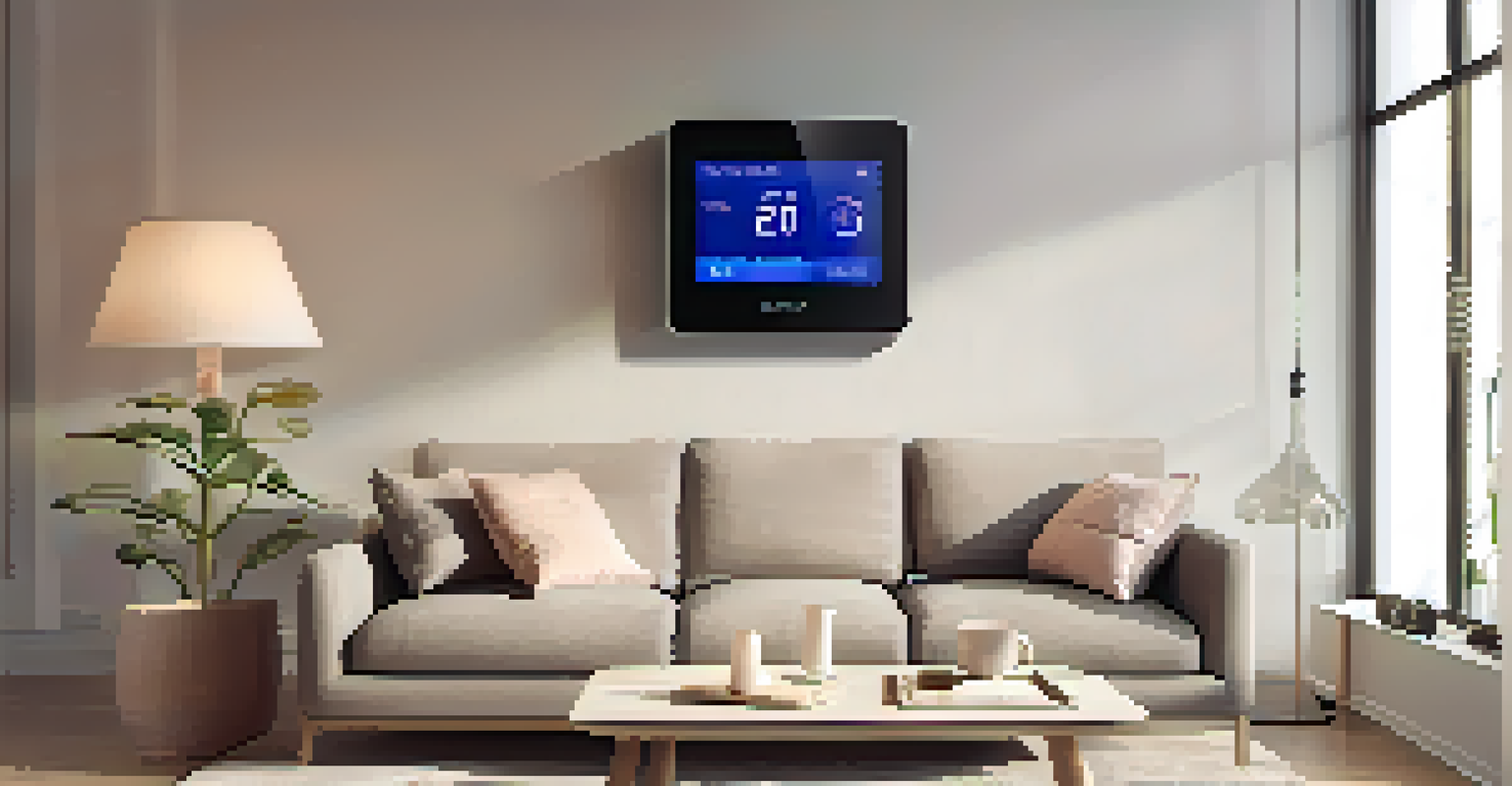Summer Home Cooling: Maintenance Tips for HVAC Systems

Understanding Your HVAC System for Summer Use
Before diving into maintenance, it’s essential to understand how your HVAC system works. At its core, an HVAC system regulates indoor temperature and air quality, providing comfort during the hot summer months. Knowing the components, such as the condenser, evaporator, and ductwork, can help you identify areas that need attention.
The best way to predict the future is to create it.
For instance, the condenser unit outside your home is crucial for releasing heat absorbed from indoors. If it’s blocked by debris or dirt, your system will struggle to keep your home cool. A little knowledge goes a long way in ensuring your system operates efficiently throughout the summer.
So, take a moment to familiarize yourself with your HVAC system. This understanding will not only aid in maintenance but also empower you to make informed decisions about repairs or upgrades as needed.
Regularly Change Your Air Filters for Optimal Performance
One of the simplest yet most effective maintenance tasks is changing your air filters regularly. A dirty air filter restricts airflow, forcing your HVAC system to work harder, which can lead to higher energy bills and potential breakdowns. It's recommended to check your filters every month, especially during peak summer months.

Imagine trying to breathe through a straw versus a wide-open space; that’s how your HVAC system feels with a clogged filter. By replacing filters every 1-3 months, you can enhance air quality and ensure your system runs smoothly. Plus, it’s a quick task that only takes a few minutes!
Understand HVAC for Better Care
Familiarizing yourself with your HVAC system's components helps ensure efficient operation and informed maintenance decisions.
In addition to improving efficiency, clean filters can also extend the lifespan of your HVAC system. When the system isn’t overworked, it’s less likely to experience wear and tear, saving you money on repairs in the long run.
Keep the Outdoor Unit Clear and Clean
The outdoor unit of your HVAC system deserves some attention too. It’s vital to keep the area around the condenser unit free from debris, such as leaves, grass, and dirt. A clear space allows for proper airflow, which is essential for effective cooling performance during hot summer days.
An ounce of prevention is worth a pound of cure.
Consider a good rule of thumb: maintain at least a two-foot clearance around the unit. This not only helps your system operate efficiently but also prevents overheating. If you notice any blockages, simply clear them away to ensure optimal functionality.
Additionally, give the unit a gentle rinse with a garden hose to remove dust and grime buildup. This simple step can significantly improve your system's efficiency and longevity, ensuring you stay cool all summer long.
Schedule Professional HVAC Inspections Regularly
While DIY maintenance is essential, don’t overlook the importance of professional HVAC inspections. Scheduling an annual check-up with a certified technician can catch potential issues before they turn into costly repairs. Technicians can assess your system’s performance and make necessary adjustments to enhance efficiency.
Think of this like a yearly health check-up; it’s preventative care that keeps your HVAC system in tip-top shape. During the inspection, technicians will clean components, check refrigerant levels, and assess electrical connections, ensuring everything is running smoothly.
Regular Filter Changes are Key
Changing air filters regularly enhances airflow, improves air quality, and extends your HVAC system's lifespan.
Investing in these annual inspections can extend the lifespan of your HVAC system, improve energy efficiency, and ultimately save you money. It’s a small price to pay for peace of mind during those warm summer months.
Use Programmable Thermostats for Efficiency
A programmable thermostat is a game-changer for summer HVAC efficiency. These devices allow you to set specific temperatures for different times of the day, ensuring your system isn’t working harder than it needs to when you’re not home. By adjusting the temperature based on your schedule, you can save energy and reduce utility bills.
For example, you can program your thermostat to raise the temperature a few degrees during the day when the house is empty and cool it down just before you return home. This way, you enjoy comfort without wasting energy. It’s like having your cake and eating it too!
Moreover, many modern thermostats come with smart features that allow you to control your system remotely. This added convenience means you can make adjustments from anywhere, ensuring your home is always at the perfect temperature when you arrive.
Seal and Insulate Ducts to Prevent Air Loss
If your home has a ducted system, consider sealing and insulating your ducts. Leaky ducts can lead to significant energy loss, causing your HVAC system to work overtime to maintain the desired temperature. A well-sealed duct system ensures that cool air reaches every corner of your home efficiently.
You can check for leaks by inspecting visible ducts or using a smoke pencil to detect airflow. If you find any gaps, use duct mastic or metal tape to seal them. This simple step can enhance your system’s efficiency and lower your energy bills.
Schedule Annual Professional Checks
Regular professional inspections can identify potential issues early, saving you from costly repairs and ensuring optimal system performance.
Insulating ducts, especially those in unconditioned spaces like attics or basements, can further improve energy efficiency. Proper insulation keeps the cool air from warming up before it reaches your living spaces, ensuring you stay comfortable all summer long.
Know When to Upgrade Your HVAC System
Understanding when to upgrade your HVAC system is crucial for maintaining comfort in your home. If your system is more than 10-15 years old, it may be time to consider a replacement. Newer models often come with advanced technology that enhances efficiency and reduces energy consumption.
Another sign that an upgrade might be necessary is frequent breakdowns or repairs. If you find yourself calling a technician more than once a season, it could be more cost-effective in the long run to invest in a new system. Think of it as spending a little now to save a lot later.

Additionally, modern HVAC systems are often more environmentally friendly, using less energy and reducing your carbon footprint. Upgrading not only improves your comfort but also contributes to a more sustainable future for our planet.